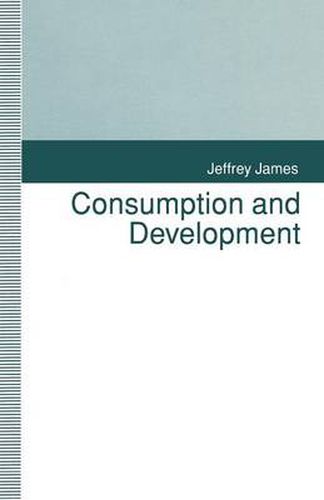Readings Newsletter
Become a Readings Member to make your shopping experience even easier.
Sign in or sign up for free!
You’re not far away from qualifying for FREE standard shipping within Australia
You’ve qualified for FREE standard shipping within Australia
The cart is loading…






This title is printed to order. This book may have been self-published. If so, we cannot guarantee the quality of the content. In the main most books will have gone through the editing process however some may not. We therefore suggest that you be aware of this before ordering this book. If in doubt check either the author or publisher’s details as we are unable to accept any returns unless they are faulty. Please contact us if you have any questions.
Conventional consumption theory is a part of demand analysis and as such belongs to positive economics, but it also lies at the very core of welfare economics, which is concerned with prescriptive or normative propositions. The principal theme of this book is that in its latter capacity, the value of consumption theory is greatly diminished by its inability to come to grips with - and hence to assess and influence - the changes that form part of the modernization process in developing countries.
$9.00 standard shipping within Australia
FREE standard shipping within Australia for orders over $100.00
Express & International shipping calculated at checkout
This title is printed to order. This book may have been self-published. If so, we cannot guarantee the quality of the content. In the main most books will have gone through the editing process however some may not. We therefore suggest that you be aware of this before ordering this book. If in doubt check either the author or publisher’s details as we are unable to accept any returns unless they are faulty. Please contact us if you have any questions.
Conventional consumption theory is a part of demand analysis and as such belongs to positive economics, but it also lies at the very core of welfare economics, which is concerned with prescriptive or normative propositions. The principal theme of this book is that in its latter capacity, the value of consumption theory is greatly diminished by its inability to come to grips with - and hence to assess and influence - the changes that form part of the modernization process in developing countries.